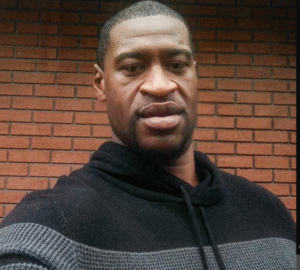
It’s been five years since George Floyd was killed at the hands of police here in Minneapolis, and the city is still working to heal. Public pressure and brave lawmakers have pushed for change since Floyd’s death, and a number of important measures and protections have been put into place. In today’s blog, we explore some of the laws that have been passed in the wake of George Floyd’s murder.
Response To George Floyd’s Death
Many new laws have been passed in the wake of George Floyd’s death in the hopes of improving policing tactics and bolstering trust in law enforcement as a whole. Here’s a look at some of the measures that have been passed in response to Floyd’s killing:
Use Of Deadly Force – Legislators revised a state law that allowed police to use deadly force to “protect the peace officer or another from apparent death of great bodily harm.” The revision removed the word “apparent” and added three requirements to justify the use of deadly force. The change stated that the threat must be “articulated with specificity, reasonably likely to occur absent action by law enforcement,” and “addressed through the use of deadly force without unreasonable delay.” Essentially, the changes made it less likely that police officers could jump to deadly force during a confrontation with a suspect.
Duty To Intercede – Minneapolis police already had a “duty to intervene” policy when Floyd was killed, which was part of the reason three other officers who were with Derek Chauvin that day were also convicted of charges. Changes to the policy required the Minnesota Board of Peace Officer Standards and Training to “adopt an updated comprehensive written model policy on the use of force, including deadly force, by peace officers.” The change stated that law enforcement have a duty to intercede “when present and observing another peace officer using force that is clearly beyond what is objectively reasonable under the law and the particular circumstances of the case.”
BCA Use Of Force Investigations Unit – The Minnesota Bureau of Criminal Apprehension typically gets involved in investigations when officers use deadly force, but a law change made it official and appropriated funds for the BCA to establish and operate the independent Use of Force Investigations Unit.”
“Excited Delirium” Training – A legal change in 2024 dictates that “a law enforcement agency may not provide, directly of through a third party, to a peace officer any course that includes training on the detection of use of excited delirium.” The term “excited delirium” – described as someone being in an agitated state and having extreme aggression – was mentioned many times during Floyd’s trial, despite the fact that the term is not listed in the standard classification system for mental disorders.
Improved Civilian Complaint Process – A law change gives a civilian oversight council the right to retain an investigator for a misconduct review against an officer for the purpose of collecting evidence, compelling testimony or making a finding of misconduct and recommending discipline. Previously, complaints against officers could be taken up by a civilian review, but they did not have the power to make findings of fact.
Crisis Calls – Previously, 911 calls for mental health issues “may include a referral to mental health crisis teams, where available.” The word “may” has since been changed to “shall.”
Many positive changes have been made since George Floyd’s death, but it’s disheartening that it needed to reach this point for these measures to be taken.
If you or someone you know finds themselves in need of criminal defense in the greater Twin Cities area, reach out to Avery and the team at Appelman Law Firm today at (952) 224-2277.





